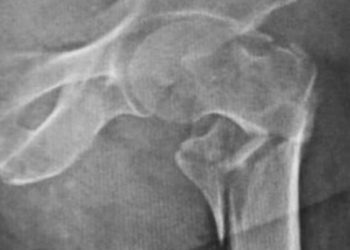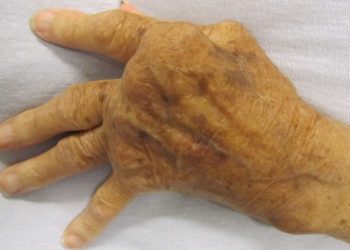Late-arresting attenuated parasite provides greater malaria protection than early-arresting parasite
1. In this randomized controlled trial, it was found that GA2, a late-arresting, genetically attenuated Plasmodium falciparum parasite, induced greater protective efficacy and cellular immunogenicity against malaria compared to GA1, an early-arresting parasite, and placebo.
2. No significant difference in the incidence and severity of adverse effects was observed between groups, and no serious adverse events occurred during the trial.
Evidence Rating Level: 1 (Excellent)
Study Rundown: The malaria vaccines currently approved by the World Health Organization are subunit vaccines that only provide modest and short-lived protection. Alternative vaccination strategies based on whole, genetically attenuated parasites have the potential to provide better protective efficacy, as they expose the immune system to a broader array of parasite antigens, inducing both humoral and cellular immune responses. GA1 is an early-arresting genetically attenuated parasite that has been previously tested but demonstrated poor protective efficacy against malaria. GA2 is a second-generation genetically attenuated parasite which is late-arresting, thus exposing the immune system to a broader array of antigens and potentially improving protective efficacy. The present trial assessed the efficacy and safety of GA2 compared with GA1 and placebo for protection against malaria among healthy adults. GA2 provided greater protective efficacy against malaria and induced higher cellular immunogenicity compared with both GA1 and placebo. GA2 was also found to be safe, with no significant difference in the incidence and severity of adverse effects noted between groups, and no serious adverse events observed during the trial. The study was limited by its small sample size, with further trials involving greater numbers of participants being required to better understand the safety profile of GA2. Additionally, the immunogenicity of GA2 needs to be further assessed for durability and against a greater variety of P. falciparum strains that are found in regions where malaria is endemic. Nevertheless, these findings show that GA2 is associated with a favorable immune induction profile and protective efficacy against malaria.
Click to read the study in NEJM
In-Depth [randomized controlled trial]: This double-blind, randomized-controlled trial compared the efficacy and safety of GA2 with that of GA1 and placebo for protection against malaria among healthy adults. Adults 18 to 35 years of age who were in good health, as determined by medical history, physical examination, laboratory evaluation, and electrocardiography were included. The primary efficacy outcome was the number of participants with blood-stage parasitemia after controlled infection with malaria, defined as >100 P. falciparum parasites per milliliter, as assessed via qPCR assay. The primary safety outcomes were the number and severity of adverse events following immunization. A total of 20 participants were included in the study, with nine assigned to the GA2 group, 8 to the GA1 group, and 3 to the placebo group. Immunization with GA2 resulted in 89% protection (95% Confidence Interval [CI], 31 to 98), with eight of the nine participants having negative qPCR tests until the end of the study. In contrast, protection was observed in one of eight participants in the GA1 group and zero of three participants in the placebo group. Higher titers of antibodies against P. falciparum CSP were detected in the GA2 and GA1 groups combined, compared with placebo (1.33±0.35 vs. 0.01±0.16), with a difference of 1.32 μg per milliliter (95% CI, 0.89 to 1.77); however, titers did not differ between the GA2 and GA1 groups. Regarding cellular immunity, a higher frequency of P. falciparum-specific CD4+ T cells was observed in the GA2 group compared to the GA1 group. There was no significant difference in the incidence and severity of adverse events between the GA2, GA1, and placebo groups, with the most common local adverse events being erythema and pruritis and the most common systemic adverse events being myalgia and headache. No serious adverse events occurred during the study. In summary, GA2 induced greater protective efficacy and cellular immunogenicity against malaria compared with GA1.
Image: PD
©2024 2 Minute Medicine, Inc. All rights reserved. No works may be reproduced without expressed written consent from 2 Minute Medicine, Inc. Inquire about licensing here. No article should be construed as medical advice and is not intended as such by the authors or by 2 Minute Medicine, Inc.









